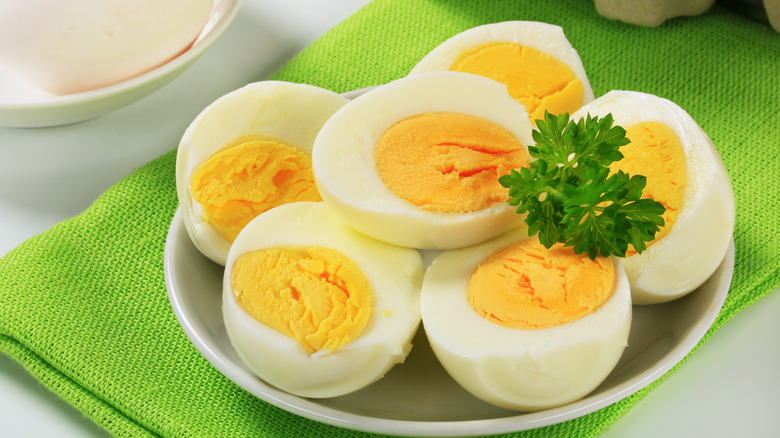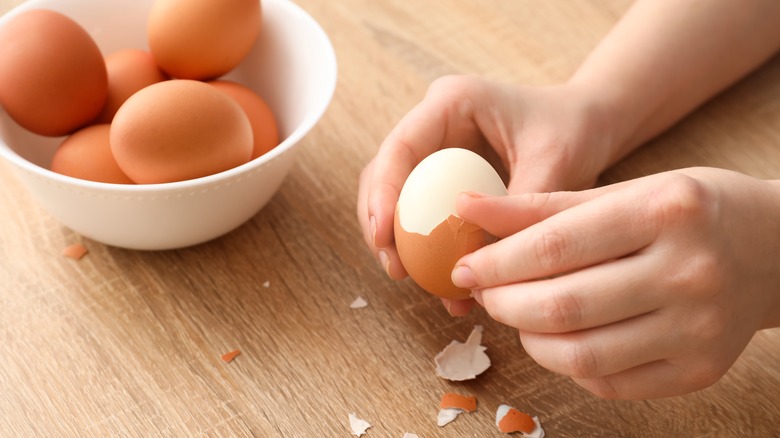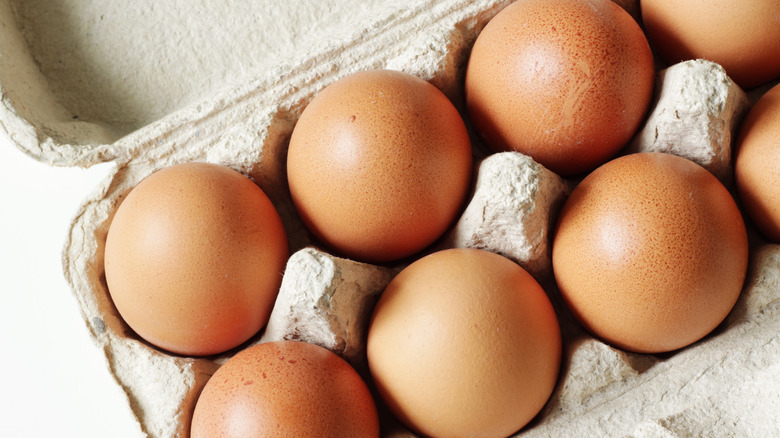Why You Shouldn't Hard Boil The Freshest Eggs In Your Fridge
Before you furrow your brow, hear us out. Using older eggs for hard-boiling is a culinary wisdom that may seem counterintuitive at first glance. However, there's a method to this madness. While the instinct might be to reach for the freshest eggs available, experienced cooks often prefer slightly older eggs for the task. Why?
The answer lies in the subtle changes that occur within the egg as it ages. Older eggs, those that have been sitting in your refrigerator for a week or two, are notably easier to peel after boiling compared to their fresher counterparts. This seemingly paradoxical advice can be attributed to several factors, including changes in the egg's pH level, air pocket size, and the adherence of the egg white to the shell membrane. Understanding these dynamics sheds light on why opting for older eggs can lead to more successful hard-boiled egg dishes. You'll thank us later.
Old eggs peel better
Whether you're making hard-boiled eggs or deviled eggs, using some that are a few days old will save you a ton of time peeling them. And, they'll look better, too. Here's why: As eggs age, they lose moisture through their porous shells, which can cause the egg to contract slightly and create a larger air pocket between the egg white and the shell. This air pocket can make peeling the egg easier after boiling.
Additionally, as eggs age, their pH levels increase, making the whites less acidic. This higher pH causes the bond between the egg membrane and the albumen to be much weaker, making it easier to separate the cooked white from the shell. Fresh eggs have a lower pH, which can cause the egg white to stick more strongly to the inner shell membrane. This makes peeling the egg more challenging without tearing the white.
If you only have very fresh eggs available, you can still make hard-boiled eggs successfully, but they might be more difficult to peel. Adding a bit of vinegar to the boiling water or shocking the eggs in an ice water bath after boiling can help make them easier to peel, regardless of freshness.
Don't use expired eggs
We have recommended using eggs that are a few days old here, but it is important to note, do not use expired eggs. The best way to check for freshness is to perform the egg float test. Fill a bowl with water and gently place the egg in it. Fresh eggs will sink and lie flat on the bottom of the bowl. As eggs age, air enters through the shell, causing them to gradually float upward. If an egg stands upright on the bottom but doesn't lie completely flat, it's still relatively fresh but not as fresh as those that lie flat. If the egg floats entirely, forget about it! It's very likely past its use-by date.
Eggs that are a few days old are perfectly fine to use. Your egg carton will have a best by date that you can use for reference. The eggs will peel beautifully when they are older, and with a few simple tips, the yolks will be perfectly creamy, too.


